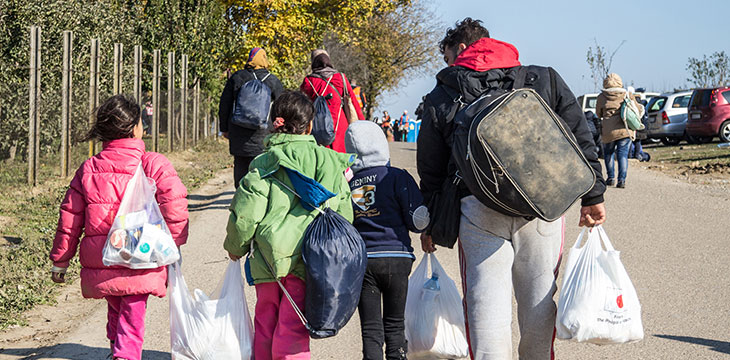|
Getting your Trinity Audio player ready...
|
The German Federal Government believes that blockchain technology could be the perfect solution for them to be able to keep track of those seeking asylum in the country.
Blockchain technology has proven itself to be the perfect choice for connecting networks across cross-sectional areas of government, as well as across international borders. According to the report, the concept has already been tested and has been shown to be effective in creating the kind of communication and cooperation that is needed to be able to track those who are seeking asylum within the German borders.
This is not a surprising development. The refugee crisis, spurned by uprisings across the Middle East and North Africa, has led to 68 million people being dispersed from their homes, fleeing across Europe to find refuge. Keeping track of individuals moving from country to country has not been easy, but by using blockchain technology it is hoped that better integration of resources and information can be obtained across different governmental agencies, as well as with different countries in Europe.
Finland is already using this technology, employing it in September of last year. The Scandinavian country was seeing a large influx of refugees and was looking for a way to be able to more accurately track unbanked asylum-seekers. This technology also allowed them to be able to keep better financial records across the various agencies that would be working with these refugees to help them integrate into Finnish society.
That this technology was seen as a key element to tracking the country’s MONI cards, the cards that are issued to refugees that provides financial resources once they are processed through the system, is not surprising. Blockchain technology has been seen as the solution for providing optimal cybersecurity for banks and other financial institutions to keep transactions and accounts secure.
Much of this technology is already used in the financial sectors. Renta 4 Banco teamed up with BME to create a digitized certificate that would allow for an instantaneous transfer of digital currencies. The Australian Transaction Reports and Analysis Centre (AUSTRAC) has also used this technology to assist in protecting automated fund transfers from hackers.
The success in protecting records and information in the financial sector has made it only logical that this technology to try to assist in the growing refugee crisis across Europe. As a need for secure records that allow for information to be reviewed immediately becomes imperative, it seems only logical that blockchain technology could be the solution to their problem.

 02-18-2026
02-18-2026 




